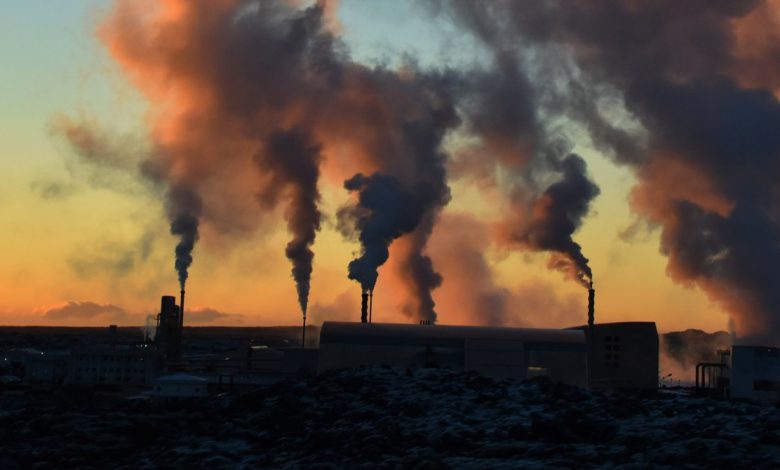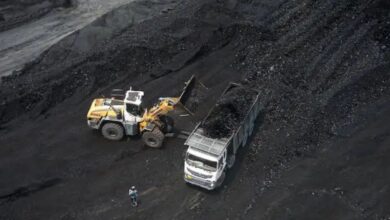New Research Shows Fossil Fuel Indebtedness Undermining Net Zero
Government debt relative to the size of the economy has been on an upward trend in most fossil fuel revenue-dependent countries

• New research from global affairs think tank ODI highlights the worrying scale of fossil fuel indebtedness in low- and middle-income countries.
• Over-reliance on fossil fuel extraction to service debt has locked many countries into a vicious cycle – even when oil and gas prices are high.
• There is a significant risk to the global energy transition unless creditors – public and private – put in place systemic debt relief and debt forgiveness for countries struggling with fiscal and climate challenges.
• If the international community is serious about tackling climate change and development challenges simultaneously, it is “mission-critical that this becomes a key issue on the agenda” for the upcoming Summit for a New Global Financing Pact, says ODI.
A vicious debt-cycle linked to fossil fuel extraction in low- and middle-income countries is risking the global energy transition, new research from global affairs think tank ODI has shown. As debt payments rise, countries are incentivised to expand oil and gas production to generate revenue to service their debt. This jeopardises global climate targets, and is at odds with the need to keep new oil and gas in the ground.
ODI’s study, which examined debt levels of 21 low- and middle-income countries over an 11-year period, shows that countries increased borrowing when oil and gas prices were high – as creditworthiness is enhanced – and also when prices were low – to avoid burdening citizens with the cost of declining revenues.
In the period of the study debt levels rose in most oil- and gas-producing countries. Over the analysis period, Angola, Gabon, Mozambique, Venezuela and the Democratic Republic of Congo (DRC) all saw debt as a percentage of GDP soar by over 50 percentage points. The proportion of debt provided on concessional terms has declined and debt from private creditors has risen – for example, Chad and Bolivia have seen a 75-fold increase.
Climate change means that the risks associated with oil and gas production are stark – both the devastating impacts of higher average temperatures and the prospects of disappearing export markets. Countries also face the acute risk of major losses from stranded assets. As global demand for fossil fuels reduces and the price of renewable energy continues to fall, the value of fossil fuel
assets will decline.
But this study offers realistic interventions that could break this damaging cycle, including action by wealthy nations to provide debt relief or debt forgiveness, the adoption of international financing arrangements that incentivise the phasing out of oil and gas, or the provision of targeted concessional finance.
Reliance on fossil fuels for borrowing and to service debt is a major barrier to phasing out oil and gas globally. Fossil-fuel indebtedness should be at the top of the agenda for the upcoming Paris Summit, convened by Emmanuel Macron and Mia Mottley, where global cooperation on financing to support climate and other sustainability goals is set to be discussed. This is critical given that historical responsibility for climate change sits with high- and upper-middle income countries whose governments and financial institutions hold most of low- and middle-income countries’ public debt.
Carlos Lopes, ODI Visiting Senior Fellow, Professor at the Nelson Mandela School of Governance, University of Cape Town and Chair of the African Climate Foundation Board said: This research clearly highlights the need for wealthy nations to foster development pathways that allow countries to wean themselves off oil and gas; to free themselves. Fairness isn’t a feature of the energy transition, it’s the foundation. Debt relief or forgiveness of countries beholden to oil and gas, and provision of financing arrangements that incentivise oil and gas-rich countries to phase out rather than expand production, are critically important for a just and equitable energy transition.”
Ipek Gençsü, Acting Director of Climate and Sustainability at ODI said: “Reliance on oil and gas export revenues to service external debts risks countries being locked into a cycle of indebtedness and fossil fuel dependency. This poses a challenge to securing a timely and just energy transition. We need to make use of new and innovative solutions to support and fast-track a just and clean energy transition, and this research shows there are options available that decision-makers must make use of quickly.”
Shandelle Steadman, Senior Research Officer at ODI said: “At a time when the urgency for climate action is mounting, our research shows that the high level of dependency on oil and gas revenues in the countries we examine makes the phase-out of fossil fuel production seem fiscally irresponsible. If the international community is serious about tackling climate change and development challenges simultaneously, it is mission-critical that this becomes a key issue on the agenda when leaders meet in Paris this month.”
Some key findings from the report are:
- Government debt relative to the size of the economy has been on an upward trend in most fossil fuel revenue-dependent countries.
- Not only has debt increased as a share of GDP, but the relative share of more expensive debt has grown for almost all the countries that were sampled.
- Debt servicing accounts for a growing proportion of foreign exchange earnings from oil and gas exports.
- The gap between oil and gas rents (a government’s total earnings from their oil and gas production) on the one hand and debt service payments on the other is narrowing- as many countries rely on oil and gas rents to service their debt.
- The high level of dependency on oil and gas revenue makes the phase-out of fossil fuel production seem fiscally irresponsible – despite the urgency of responding to climate change.
The writer of this article is Dr. Seema Javed, an environmentalist & a communications professional in the field of climate and energy




